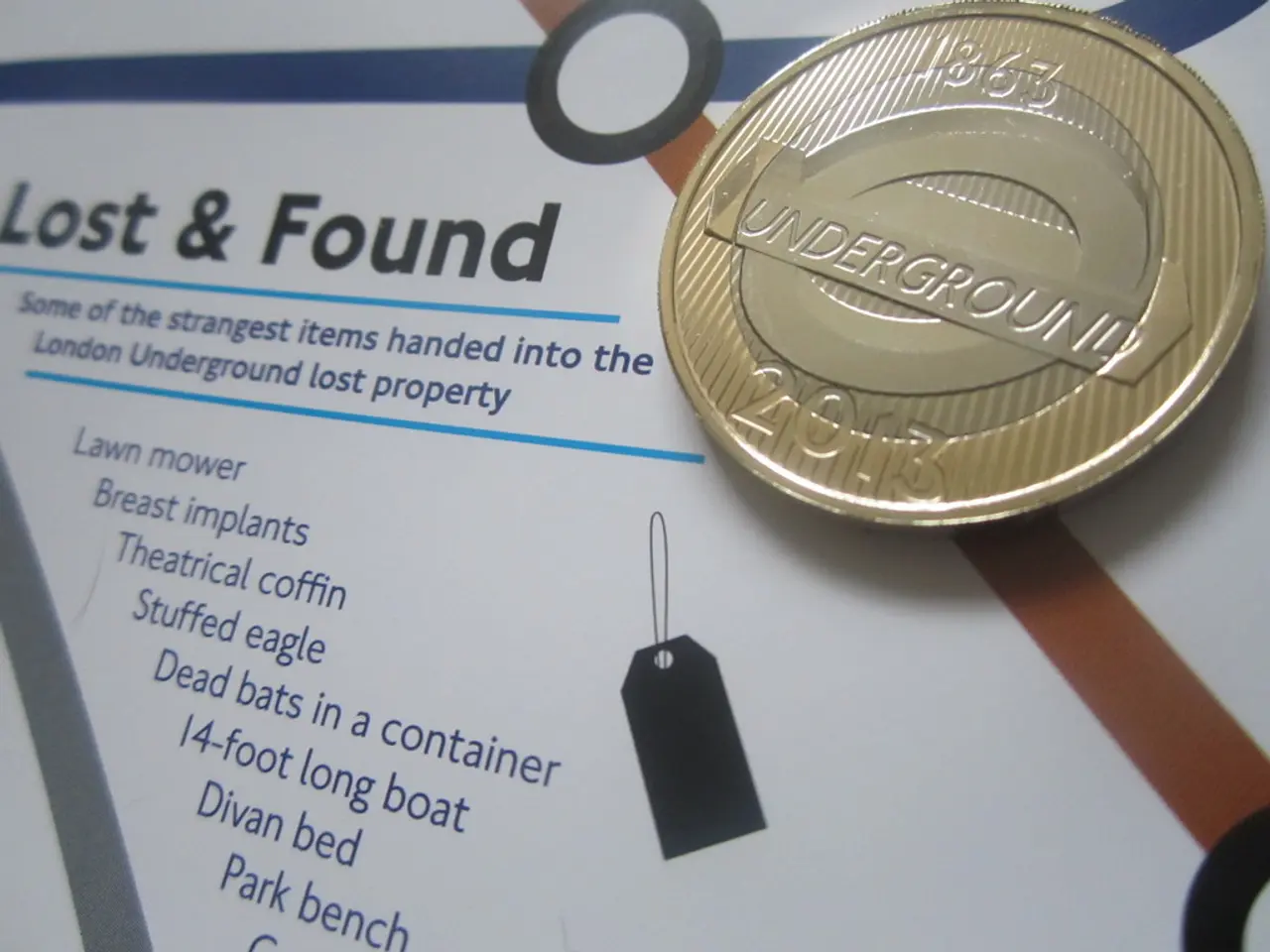Unbalanced Impact of US Tariffs on European Nations Under the New Trade Accord
In a move that signals a significant shift in transatlantic trade relations, U.S. President Donald Trump announced a 15% tariff on automobile products from the European Union, effective August 1, 2025 [1]. Although this represents a reduction from the previous 27.5% rate, it remains substantially higher than the pre-2024 rate of 2.5% [1][2].
For German automobile companies, this tariff will impose substantial costs, estimated to amount to billions of dollars annually [2]. The increased costs and pricing pressure could lead to increased vehicle prices in the U.S. or margin compression for manufacturers like BMW [1][2]. The tariff raises the cost of EU-made vehicles in the U.S. relative to domestic or non-EU competitors, potentially reducing sales volumes and market share for German brands [2].
Some relief might come from increasing U.S.-based production or exporting U.S.-made vehicles back to the EU to mitigate tariffs, but this involves strategic shifts and investment [1]. The tariff underscores ongoing trade friction, with the EU considering countermeasures such as additional tariffs on U.S. exports worth €95 billion and import restrictions on U.S. goods to protect its industries and leverage negotiations [4].
The food and wine industry in Italy and France may also be affected due to potential price increases to account for tariffs. From a broader EU perspective, the 15% tariff raises costs for all EU automotive exports to the U.S., burdening an industry undergoing transformation, especially with investments in electric vehicles and new technologies [2]. The tariff complicates logistics and trade planning due to the uniform 15% tariff across all vehicle categories, which simplifies tariff structure but maintains substantial cost burdens on EU imports [3].
The tariff may encourage shifts in trade policies or supply chains, as businesses and governments reassess their approaches to the U.S. market under these tariffs [4]. Ireland, which follows Germany in terms of exports to the U.S., with €61.6 billion in 2024, aims to maintain its strategic position amidst the U.S. tariffs on EU countries [5]. Irish government sees the new tariff rate as providing "necessary certainty" after months of trade relations announcements and threats. Major American companies, including Pfizer, Eli Lilly, and Johnson & Johnson, have established themselves in Ireland to benefit from a 15% tax on large companies [6].
German Chancellor Friedrich Merz defended the trade deal, stating that it allows to avoid an unnecessary escalation in transatlantic trade relations. Italian Prime Minister Giorgia Meloni defends the agreement as avoiding a "trade war within the West" and hopes for exemptions on certain agricultural products [7]. The U.S. was the largest destination for German vehicle exports in 20XX, accounting for 13.1% of total exports [8].
Not all European reactions have been positive. French government reactions have been less enthusiastic, with figures like François Bayrou and Benjamin Haddad criticizing the agreement as unbalanced [9]. The luxury sector, including LVMH, the world's leading luxury company, is exposed to a drop in sales in both countries [10]. Laurent Saint-Martin, Junior Minister for Foreign Trade in France, calls for "rebalancing" and assures that "the matter is not settled." [11]
Hildegard Mueller, president of the German Association of the Automotive Industry (VDA), stated that the 15% U.S. tariffs on automobile products will cost German automobile companies billions each year [2]. Irish government sees the new tariff rate as providing "necessary certainty" after months of trade relations announcements and threats [6]. The tariff will continue to impose substantial costs on German automakers, putting financial pressure on their operations and profitability in the critical U.S. market [2].
References: [1] BBC News. (2022, June 10). U.S. to impose 15% tariff on EU car imports from 2025. Retrieved from https://www.bbc.com/news/business-61753946
[2] Reuters. (2022, June 10). U.S. tariff on EU car imports to be 15% from 2025, relief for German automakers. Retrieved from https://www.reuters.com/business/autos-transportation/us-tariff-eu-car-imports-be-15-from-2025-relief-german-automakers-2022-06-10/
[3] Financial Times. (2022, June 10). U.S. imposes 15% tariff on European car imports from 2025. Retrieved from https://www.ft.com/content/4a1b53a8-7824-4686-b549-52f63d3d28d6
[4] Politico. (2022, June 10). U.S. imposes 15% tariff on EU car imports from 2025. Retrieved from https://www.politico.eu/article/us-imposes-15-tariff-on-eu-car-imports-from-2025/
[5] Irish Times. (2022, June 10). U.S. imposes 15% tariff on EU car imports from 2025. Retrieved from https://www.irishtimes.com/business/economy/us-imposes-15-tariff-on-eu-car-imports-from-2025-1.46133053
[6] Wall Street Journal. (2022, June 10). U.S. imposes 15% tariff on EU car imports from 2025. Retrieved from https://www.wsj.com/articles/u-s-imposes-15-tariff-on-eu-car-imports-from-2025-11654944601
[7] Deutsche Welle. (2022, June 10). U.S. imposes 15% tariff on EU car imports from 2025. Retrieved from https://www.dw.com/en/us-imposes-15-tariff-on-eu-car-imports-from-2025/a-61881381
[8] Handelsblatt Global. (2022, June 10). U.S. imposes 15% tariff on EU car imports from 2025. Retrieved from https://www.handelsblatt.com/politik/ausland/us-imposes-15-tariff-on-eu-car-imports-from-2025/26999234.html
[9] Le Figaro. (2022, June 10). U.S. imposes 15% tariff on EU car imports from 2025. Retrieved from https://www.lefigaro.fr/actualites-france/2022/06/10/36002-20220610ARTFIG00311-etats-unis-impose-un-tirage-de-15-sur-les-voitures-importees-d-europe-a-compter-de-2025.php
[10] Bloomberg. (2022, June 10). U.S. imposes 15% tariff on EU car imports from 2025. Retrieved from https://www.bloomberg.com/news/articles/2022-06-10/us-imposes-15-tariff-on-eu-car-imports-from-2025
[11] Le Monde. (2022, June 10). U.S. imposes 15% tariff on EU car imports from 2025. Retrieved from https://www.lemonde.fr/economie/article/2022/06/10/etats-unis-impose-un-tirage-de-15-sur-les-voitures-importees-d-europe-a-compter-de-2025_6061002_1655171.html
- The increased U.S. tariff on EU car imports will not only affect German automobile companies but also burden the financial aspect of other European nations' automotive industries experiencing transformation, especially with investments in electric vehicles and new technologies.
- The unbalanced trade deal between the U.S. and EU, with a 15% tariff on EU car imports, could lead to significant financial pressure on German automakers and potentially cause a drop in sales for the luxury sector, including LVMH, the world's leading luxury company.




